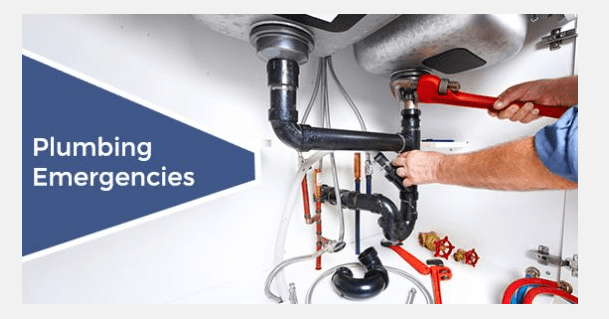Plumbing emergencies can strike at any time and often when you least expect it. A burst pipe, a blocked drain or a faulty appliance can all lead to an unwanted plumbing crisis. This article is aimed at giving you some very useful tips on preparing for emergencies and preventing them from escalating. But what kind of plumbing problems could be classed as emergencies?
Notable Plumbing Emergencies
- Pipe bursts are one of the most common plumbing emergencies. They can be caused by a range of factors such as freezing temperatures, pressure build-up or corrosion. If you suspect a pipe has burst, you should shut off the water at the mains immediately and call a qualified plumbing engineer.
- Blocked drains are another frequent problem. Grease, hair and food waste can all contribute to a blocked sink or toilet. In some cases, the blockage may only be partial and you may be able to clear it yourself using a plunger or drain unblocker. However, if the blockage is severe or you are unable to clear it, you should contact a professional drain clearing company.
- Faulty appliances such as washing machines and dishwashers can also cause plumbing problems. If you notice a leak from your appliance, you should unplug it and call an engineer to fix the problem.
Managing During Plumbing Emergencies
The best way to avoid a plumbing emergency is to be prepared and have a plan in place should something go wrong. Below are some tips on how you can cope with plumbing emergencies from when they happen in your home. If you do not have a regular handyman to come quickly to help, finding an emergency plumber near me in San Francisco with an internet search will provide useful results.
- Know where your main water shut-off valve is located and how to use it. In the event of a burst pipe, being able to quickly shut off the water supply can minimize the amount of damage caused.
- Regularly check pipes and appliances for signs of wear and tear. If you spot any leaks, drips or cracks, get them fixed as soon as possible before they have a chance to worsen.
- Never pour grease or fat down the drain as it can solidify and cause blockages further down the line. Dispose of it in the bin instead.
- Don’t flush anything other than toilet paper down the toilet as this can also cause blockages.
- If you have a blocked drain, never try to fix it yourself with caustic chemicals as this can damage your pipes. Call a professional plumber instead.
By following these simple tips, you can help prevent plumbing emergencies from occurring in the first place. However, if you do find yourself dealing with a plumbing problem, don’t hesitate to contact a professional for assistance.
Preventing Plumbing Emergencies
The best way to deal with a plumbing emergency is to prevent it from happening in the first place. Here are some tips on how you can do this.
- Inspect your pipes regularly for signs of wear and tear or leaks.
- Fix any leaks as soon as possible to prevent water damage.
- Keep your drains clear by regularly cleaning them and removing any blockages.
- Never pour grease or fat down the drain – dispose of it in the bin instead.
- Be careful what you flush down the toilet – only flush toilet paper and human waste.
- Never flush nappies, sanitary products, cotton balls or swabs, cigarette butts, or anything else down the toilet.
- Don’t overburden your plumbing system by using too many appliances that use water at the same time. This can cause a decrease in water pressure or even a complete loss of water supply.
- If you are going away on vacation, turn off the water to your home at the main valve to prevent any leaks while you’re away.
Preventative Maintenance
One of the best ways to prevent plumbing emergencies is to do some preventative maintenance on your plumbing system. This can include things like regularly checking for leaks and making sure that your pipes are in good working order. Additionally, you should have your drains cleaned on a regular basis to remove any buildup of grease, sludge, or debris.
If you do find a leak in your plumbing system, it is important to repair it as soon as possible. Leaks can lead to serious water damage, so it is important to fix them as soon as they are discovered. Additionally, if you have a clogged drain, it is important to clear it out as soon as possible to prevent any further damage.
In the event that you do experience a plumbing emergency, it is important to know what to do. First, you should turn off the water to your home and then call a plumber. Plumbers are trained to handle all sorts of emergencies, so they will be able to quickly fix the problem and get your home back up and running in no time. Additionally, if you have a septic system, you should also contact a professional to come and pump out the tank to prevent any further damage.
Taking some simple steps to prevent plumbing emergencies can save you a lot of time, money, and headaches in the long run. While some plumbing problems are unavoidable, following these tips can help you prevent most plumbing emergencies. If you do find yourself dealing with a plumbing problem, don’t hesitate to contact a professional for help.





























